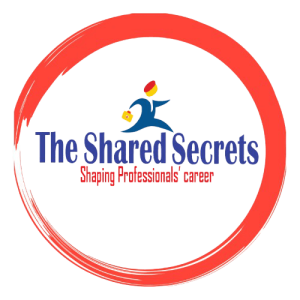Introduction
Job interviews are often nerve-wracking experiences, especially when faced with difficult and unexpected job interview questions. Whether you’re a seasoned professional or just starting out, the ability to master job interview questions can make or break your chances of landing your dream job. This guide offers 10 powerful interview tips to help you prepare for interviews, stay calm under pressure, and ace even the hardest questions. We’ll cover strategies like the STAR interviewing technique and offer interview answer examples, so you’re fully equipped to handle any challenge thrown your way.
Understanding Why Interviews Are Challenging
Before diving into interview tips, it’s essential to understand why interviews can feel so intimidating. Often, it’s not just about your qualifications but how well you handle pressure. Employers ask difficult questions to see how you think on your feet, assess problem-solving skills, and evaluate whether you’re the right fit for the role.
Tip #1: Thoroughly Research the Company
One of the most overlooked but critical steps to acing a job interview is researching the company. This goes beyond skimming their website. Understand the company’s culture, mission, recent projects, and challenges. This knowledge allows you to tailor your answers to align with the company’s goals, making your interview for the job more relevant and impactful.
Interview advice: Spend time reviewing their social media, recent press releases, and even employee reviews to get a comprehensive view. Use this information to show how your experience can help them achieve their objectives.
Tip #2: Master the STAR Method
The STAR method is an excellent way to answer behavioral interview questions, which are designed to assess how you handle real-life situations. STAR stands for Situation, Task, Action, and Result. When asked about past experiences, structure your response using this framework to provide clear, concise, and well-rounded answers.
For example, if you’re asked to describe a time when you solved a problem, lay out the Situation, explain the Task at hand, describe the specific Actions you took, and then highlight the Result.
Tip #3: Practice Answering Behavioral Interview Questions
Behavioral interview questions often begin with phrases like “Tell me about a time when…” or “Give me an example of…”. These questions probe your past behavior to predict future performance.
Example Question: “Tell me about a time you had to work under pressure.”
Interview Answer Example (using STAR):
Situation: “At my previous job, we had a project deadline moved up by two weeks.”
Task: “I was responsible for delivering the final report, which required input from multiple departments.”
Action: “I created a streamlined process for gathering the necessary data quickly, and coordinated daily check-ins with team leads.”
Result: “We delivered the project two days ahead of the new deadline, earning commendation from the client.”
Tip #4: Anticipate Tough Questions
Prepare for interview questions that are likely to be tough, such as:
- “Why did you leave your last job?”
- “Where do you see yourself in five years?”
- “Tell me about a failure and what you learned from it.”
Interview Answer Example (Why did you leave your last job?):
“I left my last job because I wanted to take on new challenges and opportunities to grow professionally. While I appreciated my time there, I’m ready to leverage my skills in a new environment where I can continue to develop and contribute more effectively.”
Tip #5: Stay Calm Under Pressure
Knowing how to stay calm in job interviews is crucial. When faced with difficult questions, it’s natural to feel stressed, but there are techniques to keep anxiety in check. Practice deep breathing, stay mindful of your body language, and give yourself a moment to think before answering.
Interview advice: Remember, it’s okay to pause and gather your thoughts. Interviewers appreciate thoughtful answers over rushed responses.
Tip #6: Tailor Your Responses to the Role
Generic answers won’t cut it. Tailor each response to show how your skills, experiences, and attributes are a perfect match for the job. Highlight relevant accomplishments and how they relate to the company’s specific needs.
Tip #7: Turn Weaknesses into Strengths
The question, “What is your biggest weakness?” stumps many candidates. The key is to mention a weakness and explain how you’re actively working to improve it. This shows self-awareness and a growth mindset.
Example Answer:
“One weakness I’ve recognized is being overly detail-oriented. I’ve learned to balance this by focusing on the bigger picture and ensuring I meet deadlines without getting too bogged down in small details.”
Tip #8: Focus on Non-Verbal Communication
Your body language speaks volumes in an interview. Maintain eye contact, offer a firm handshake, sit up straight, and smile. Non-verbal cues like nodding and mirroring the interviewer’s body language can help build rapport and show confidence.
Tip #9: Ask Insightful Questions
Interviews are a two-way street. Asking thoughtful questions shows that you’re genuinely interested in the role and the company. Some good questions to ask include:
- “What are the most significant challenges currently facing the team?”
- “How do you measure success in this role?”
- “What’s the company culture like?”
Tip #10: Follow Up After the Interview
Always follow up with a thank-you email or note. This small gesture reinforces your interest in the job and gives you another opportunity to express why you’re the perfect fit.
Example Follow-Up:
“Thank you for taking the time to meet with me today. I’m excited about the opportunity to join your team and contribute to [specific project or company goal]. I look forward to the next steps.”
7 Tough Job Interview Questions and How to Answer Them
Here are seven tricky questions that often trip up candidates, along with example answers to help you prepare for interview scenarios:
- “Tell me about a time you had to handle a difficult situation at work.”
Answer Example: “In my last role, I had a disagreement with a colleague over a project approach. I scheduled a meeting to discuss our perspectives and find a compromise. In the end, we combined our ideas and delivered an even better solution.” - “Why should we hire you?”
Answer Example: “I believe my skills and experience align perfectly with the requirements of this role. I’m passionate about [industry/field], and my track record of delivering results makes me confident I’d be a valuable addition to your team.” - “What is your greatest achievement?”
Answer Example: “Leading a cross-departmental project that increased our revenue by 20% in six months was my greatest professional achievement.” - “How do you handle criticism?”
Answer Example: “I view criticism as an opportunity to learn and improve. For example, in my last job, I received feedback on my presentation skills, so I took a public speaking course to improve.” - “Where do you see yourself in five years?”
Answer Example: “In five years, I see myself taking on leadership responsibilities, continuing to grow within this industry, and contributing to innovative projects.” - “How do you prioritize your work?”
Answer Example: “I use a combination of tools like project management software and prioritization frameworks like Eisenhower’s Matrix to stay organized and ensure that urgent and important tasks are completed first.” - “What motivates you at work?”
Answer Example: “I’m driven by the opportunity to solve challenging problems and make a real impact, whether it’s improving processes or delivering exceptional results.”
Conclusion
Mastering the hardest job interview questions takes preparation, practice, and confidence. By researching the company, using the STAR method, and practicing your responses, you’ll be well-equipped to handle any question that comes your way. Stay calm, be yourself, and don’t forget to follow up afterward. Good luck!
FAQs
- What is the best way to prepare for interview questions?
The best way to prepare is to research the company, practice answering common questions, and use the STAR method for behavioral questions. - How can I stay calm during interviews?
Practice deep breathing, take your time before responding, and focus on the conversation rather than the pressure. - What is the STAR method in interviews?
STAR stands for Situation, Task, Action, and Result, a structured approach to answering behavioral interview questions. - How do I handle behavioral interview questions?
Use the STAR method to provide clear and specific examples of how you’ve handled situations in the past. - What questions should I ask in an interview?
Ask about company culture, team challenges, success metrics, and opportunities for growth within the role.

